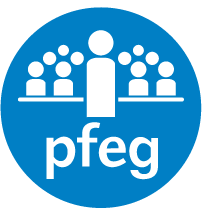Humanities
KS3
Through the History element of the Humanities course we aim to show how important events and individuals have shaped our world, and the societies we live in. We want to help pupils understand events in a complicated world, enabling them to make their own judgements about issues past and present.
Through the Geography element of the course pupils will learn about the natural and human processes that affect and change our world. We will also look at how people respond to their surroundings, and how they interact with and make use of their environment. Again pupils are encouraged to make judgements and express views based on the evidence they see.
In Religious Education pupils study the beliefs and practices of many cultures, as well as being given the opportunity to examine their own views on a variety of moral and spiritual issues.
In addition to the subject content of all three areas, pupils are also encouraged to develop important skills such as the use of maps, primary and secondary sources of evidence, and enquiry. Pupils are taught in groups of mixed ability throughout all three years. Differentiated work allows all pupils to achieve the National Curriculum levels of which they are capable.
Marking and Assessment
Pupils are formally assessed in History, Geography and R.E. in all years. Assessments range in style from tests, research tasks and extended writing. When these are marked they are graded according to the 1-5 system with comments covering what was done well, and how to improve. Pupils are also asked to evaluate their own work. The assessments are all kept in individual folders by the class teacher. The grades achieved in these assessments are the main influencing factor for those which appear on the annual report and which we discuss with parents at Parents Evening.
Classwork
Each pupil has an exercise book in which class work should be completed. Neat work will be done in the front of the book, while other tasks like research or informal tests may be done in the back, or in a separate planner. Class work will be marked regularly with comments on what has been done well, and what needs to be done to improve. Occasionally written work will be marked by pupils in class, usually where the task has a definitive correct answer e.g. short answer tests.
Homework
The quantity and nature of homework set will vary with the topic being studied. The teacher will specify whether it is to be done in the exercise book, planner or on paper. The nature of the homework will also determine how it is marked. Homework done in the neat book will be marked like class work, with comments praising good work, and giving advice on possible improvements. Other work may simply require the teacher to check and acknowledge completion.
Religious Education Learning Journey
KS4 Assessment
Assessments are carried out at the end of key topics and in Year 10 and Year 11 mock exams. Dependent on length of topic, they will usually be assessments every term. These will consist of past exam questions, marked according to published mark schemes. Pupils will receive both individual and whole class feedback.KS4 Homework
KS4 History
At Key Stage 4 the Humanities department offers GCSE History following the Edexcel exam board. This course examines a range of History, from Medieval to modern day, requiring pupils to analyse key events, interpret a variety of evidence, and use their own knowledge to form judgements.
Pupils will study:
- Early Elizabethan England, 1558-1588 (exam code 1HI0/B4)
- Medicine in Britain, 1250-modern day (exam code 1HI0/11)
- Russia and the Soviet Union, 1914-1941 (exam code 1HI0/30)
- Superpower Relations and the Cold War, 1941-1991 (exam code 1HI0/P4)
GCSE History Detailed Subject Information
KS4 Geography
At Key Stage 4 the Humanities department offers Geography GCSE follows the AQA exam board. This course examines both Physical, Human and field work skills in three exams at the end of Year 11.
The course offers pupils the opportunity to develop a wide range of skills including literacy, numeracy, problem solving, debating and independent learning. The course will also give pupils a clear overall view of the world they live in and the changes and challenges it faces in the 21st century.
GCSE Geography Detailed Subject Information
KS4 Religious Studies
Religious Studies is part of the core Key Stage 4 curriculum studied by all pupils at South Charnwood High School. Pupils can either study GCSE Religious Studies Full Course as an option choice, following the OCR course from a Christian and Islamic perspective. All pupils will also have one lesson a week based upon the OCR GCSE short course but will not sit an exam.
The full course allows pupils to explore religious beliefs as well as reflect on fundamental questions, engage with them intellectually and respond to them personally. It will encourage pupils to adopt an enquiring and critical approach to the study of religion, as well as developing their own values and opinions.
The non examined course allows pupils to enhance their personal, social, moral and cultural development. The course will challenge and equip pupils to lead constructive lives in the modern world.


















